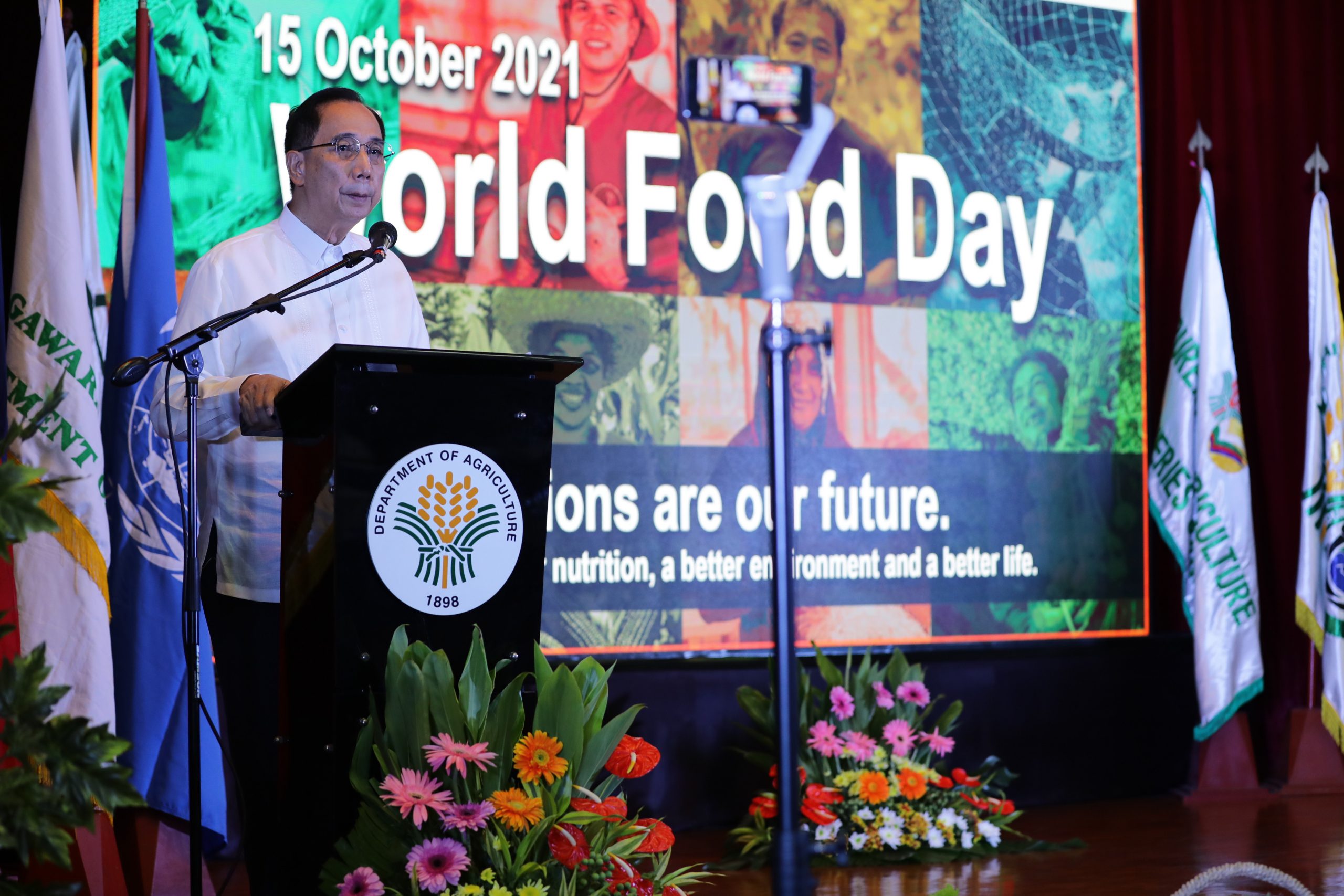
Following stories on the damage brought about by Typhoon Maring to agricultural production areas in the country, Agriculture Secretary William Dar vowed to continue working on reforms for the Philippine agriculture sector.
“Typhoons are our norm, yet we do not have to be so desensitized. We have to fight, foremost, desensitization, complacency, and stubborn traditionalism in implementing measures to boost our resiliency,” Secretary Dar said during the observance of the World Food Day on October 15, 2021.
He argued that increasing the budget of the Department of Agriculture (DA), allotting higher investments in the agriculture sector, and strongly supporting the OneDA Reform Agenda for the Transformation of Philippine Agriculture are ways to catch up with the changing world.
The OneDA Reform Agenda, composed of the pillars of consolidation, modernization, industrialization, and professionalization with 18 key strategies, serves as the department’s guide to increase productivity and profitability at the local level.
“To provide effective support for our OneDA Reform Agenda this year, we recently proposed a freshly conceived budgetary program for the Department of Agriculture. We have requested that Congress grant the agency a historic increase in budgetary allocations,” the agri chief announced.
He noted that the role of agriculture has always been lost in the country’s economic development narrative with only 1.6 percent of the national budget allotted to “the sector that kept our economy afloat during the height of the Covid crisis.”
Secretary Dar compared the country’s national budget allocation to agriculture and fisheries with that of neighboring countries such as Vietnam at 6.5 percent and Indonesia, Thailand, and Malaysia at 3.4, 3.6, and 2.3 percent, respectively.
The DA proposed a budget increase to P91 billion in 2022 from P90 billion in 2021 as a starting point.
“To further national objectives, public investments should no longer emphasize increased production in agriculture’s traditional growth areas,” Secretary Dar said.
With the developments in the rice and corn subsectors, he said that there should be equally sufficient investments in modernizing value chains, expanding the agribusiness sector, and building priority commodity industries in line with the Duterte Administration’s Reform Agenda and the food systems framework.
Among the reforms proposed in DA’s new budget program are the digitalization of agriculture and fisheries, research and development for value-added products for export markets such as coconut and banana, development of vaccine against African Swine Fever, and rebuilding the local hog population.
In line with the Mandanas-Garcia ruling and DA’s Province-led Agriculture and Fisheries Extension Systems (PAFES), Secretary Dar said that much of the success of the agricultural development programs will depend on the cooperation and foresight of the local government units.
Thus, he urged the local chief executives to allot a respectable budget to implement their respective agricultural development programs.
“Our nation’s food security – the food security of over a hundred million Filipinos – rests on the shoulders of 9.75 million mostly middle-aged farmers who till a quickly-shrinking 13.2 million hectares of farmland. Many of them live below the poverty line and are themselves hungry,” Secretary Dar said.
He added that the DA’s role in national development reflects its vision for a food-secure and resilient Philippines with prosperous farmers and fisherfolk.
“The budgetary reforms that we have proposed would turn our support programs into a far more successful investment in the future of our country – an investment made with the combination of realism, technological innovation, and idealism that marks the character of the new Filipino,” the secretary said. ### (Gumamela Celes Bejarin, DA-AFID)














